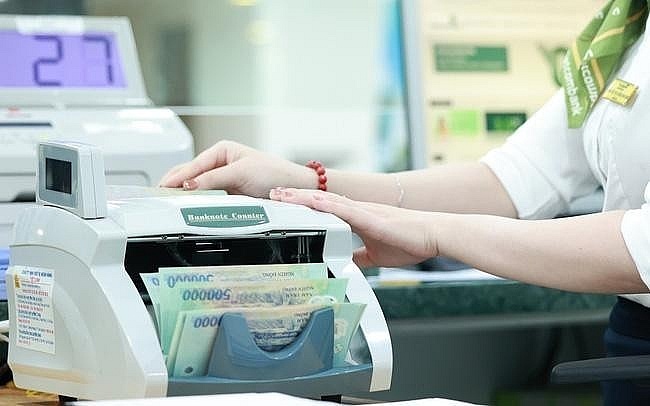Banking policies negatively impact Vietnam's economy
In early August, Agribank, HDBank, and Sacombank were added to the list of banks raising deposit rates, creating confusion as, just in late June, the International Monetary Fund had predicted that Vietnam's economy in 2024 would see nearly 6 per cent growth, outperforming last year.
 |
Le Xuan Nghia, an economic expert, shared with VIR last week, “The increase in savings interest rates will drive up borrowing costs, affecting both consumption and investment as consumers and businesses may take more cautious steps, which will hinder economic development.”
In this context, small- and medium-sized enterprises (SMEs), already struggling to access capital, will suffer, he said.
Nguyen Xuan Thanh, another economic expert, said, “In addition to internal difficulties such as weak financial management, leading to unconvincing loan applications and reduced chances of bank approval, SMEs also face external challenges in terms of high collateral requirements, high lending rates, and complex loan procedures.”
He noted that as interest rates rise, medium-sized enterprises will face even more difficulty securing loans for business expansion, forcing them to raise product or service prices to maintain profits.
"However, consumers may cut spending and investment as high savings interest rates encourage them to deposit money in banks, putting medium-sized enterprises at greater financial risk, even bankruptcy,” he added.
While medium-sized businesses face significant challenges, small enterprises with even weaker financial capacities are on the frontline of the market, where the risk of disappearing is highest.
“Nearly losing all competitiveness against larger firms in the market, and unable to meet high-interest loan obligations, these businesses have no choice but to go bankrupt,” said Nguyen Van Than, chairman of the Vietnam Association of SMEs.
With banks increasing savings interest rates and likely lending rates as well, export-oriented businesses may also be significantly affected.
Pham Tien Cong, chairman of the Vietnam Chamber of Commerce and Industry, said that if domestic interest rates rise above international rates, the local currency could appreciate, reducing the competitiveness of export goods due to increased prices.
“When goods lose competitiveness, businesses may struggle to maintain or expand their market share internationally. This leads to decreased export revenue and, consequently, lower profits,” he said.
Cong also believes that when the competitiveness of export goods declines, a chain of negative effects could impact the entire business operation and sustainable development, such as losing market share, deteriorating relationships with partners, and the potential risk of being acquired, which businesses must guard against.
“When competitiveness declines, international business partners may lose confidence in the company’s supply capabilities and product quality, potentially leading to contract losses or reduced orders. As a result, the business may become a target for acquisition by larger competitors or investors seeking to buy at a lower price.”
Meanwhile, large enterprises, though they may need to adjust their financial strategies to maintain profitability, have the opportunity to acquire smaller businesses at a reasonable price as borrowing costs rise, consolidating their market position, leading to reduced competition, stifling market development.
Nguyen Tri Hieu, an economic expert, shed light on these consequences, “The acquisition of smaller competitors by larger companies can reduce the number of players in the market, leading to decreased competition. This can result in monopolies or oligopolies, where a few large companies control most of the market. The outcome could be higher prices, lower product and service quality, and limited choices for consumers.”
Hieu believes that now is the right time for businesses to leverage existing financial policies to navigate the current volatile economic environment through programmes from the SME Development Fund (SMEDF).
Immediately after Prime Minister Pham Minh Chinh signed a directive in May focusing on monetary policy management to alleviate difficulties in production and business and stabilise the macroeconomy, the Ministry of Planning and Investment directed SMEDF to enhance its activities, especially providing loans to businesses at preferential interest rates.
Specifically, the lending rates of SMEDF are currently only 1.2 per cent per annum for short-term loans and 4.4 per cent for medium- and long-term loans.
This year, in addition to indirect lending through commercial banks, the fund will complete the legal framework to implement direct lending and capital financing.
 | Policy efforts going some way to impact investment Several key policies will shape investment channels from now until the end of 2024, notably the laws on land, housing, and real estate business, all set to take effect on August 1. These laws will be supplemented by a series of decrees detailing specific articles, currently being finalised by relevant ministries. |
 | Better policies sustainably develop genetic resources in Vietnam Vietnam has been urged to promulgate specific policy mechanisms to support the conservation, and development of valuable genetic resources combined with economic development oriented towards commodity production. |
 | The aspects behind finance and banking in Vietnam today Pramoth Rajendran, head of Wealth and Personal Banking at HSBC Vietnam, scrutinises credit situation, the factors behind and solutions in Vietnam’s current finance-banking scene, weighing on Vietnam’s growth prospects in 2024 and HSBC’s recent efforts to best serve its customers. |
What the stars mean:
★ Poor ★ ★ Promising ★★★ Good ★★★★ Very good ★★★★★ Exceptional
Related Contents
Latest News
More News
- Businesses ramp up production as year-end orders surge (December 30, 2025 | 10:05)
- Vietjet chairwoman awarded Labour Hero title (December 29, 2025 | 13:06)
- How to unlock ESG value through green innovation (December 29, 2025 | 10:03)
- AI reshapes media and advertising industry (December 29, 2025 | 08:33)
- FPT and GELEX sign deal to develop blockchain tech for global markets (December 29, 2025 | 08:29)
- Vietnam’s GDP forecast to grow by 9 per cent in 2026 (December 29, 2025 | 08:29)
- Women entrepreneurs are key to Vietnam’s economic growth (December 29, 2025 | 08:00)
- Vietnam's top 500 value-creating enterprises announced (December 27, 2025 | 08:00)
- The PAN Group shaping a better future with ESG strategy (December 26, 2025 | 09:00)
- Masan Consumer officially lists on HSX, marking the next phase of value creation (December 25, 2025 | 13:20)

 Tag:
Tag:





















 Mobile Version
Mobile Version